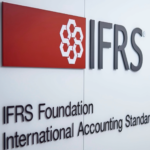- Clear Guidance for Companies: The IFRS Foundation has introduced a comprehensive guide to help companies identify and disclose material sustainability-related risks and opportunities impacting their financial future.
- Alignment with IFRS S1: The guide elaborates on how companies can understand sustainability dependencies and impacts as described in the IFRS S1 General Requirements for Disclosure of Sustainability-related Financial Information.
- Integrated Reporting Benefits: Companies already following IFRS Accounting Standards will find it easier to integrate sustainability-related disclosures with financial statements, enhancing connectivity for global investors.
The International Sustainability Standards Board (ISSB), under the IFRS Foundation, has published a new guide to aid companies in identifying and disclosing material information related to sustainability risks and opportunities. This initiative underscores the ISSB’s commitment to supporting the global adoption of its standards.
Investors and capital markets worldwide are increasingly focused on sustainability-related information for informed decision-making. The guide aims to help companies grasp how sustainability risks and opportunities, as detailed in IFRS S1 General Requirements for Disclosure of Sustainability-related Financial Information, stem from their dependencies and impacts across their value chains.
Related Article: IFRS Foundation Publishes Guide to Help Companies Voluntarily Apply ISSB Standards Amid Investor Demand
Integrated Thinking
Central to ISSB’s approach is the concept of integrated thinking, which the guide emphasizes. It discusses how a company’s operations and its interactions with stakeholders, society, the economy, and the natural environment are interconnected. IFRS S1 explains, “A company both depends on resources and relationships—such as human, intellectual, financial, natural, manufactured, and social—throughout its value chain, and also affects those resources and relationships.”
This dual effect can lead to preservation and regeneration or, conversely, degradation and depletion. Understanding these impacts helps companies pinpoint sustainability-related risks and opportunities that could affect their cash flow, cost of capital, and access to finance over varying timeframes.
Materiality Judgements
The guide illustrates a step-by-step process for making materiality judgements, which aligns closely with the four-step process outlined in the International Accounting Standards Board’s IFRS Practice Statement 2: Making Materiality Judgements. Companies already preparing financial statements under IFRS Accounting Standards, implemented in over 140 jurisdictions, will find this process particularly advantageous.
Global Standards Integration
Moreover, the guide highlights considerations for aligning sustainability-related financial disclosures with a company’s broader financial reporting. It notes that companies seeking to fulfill requirements beyond investor-focused disclosures may integrate ISSB Standards with other frameworks, such as the European Sustainability Reporting Standards (ESRS) or the Global Reporting Initiative (GRI) Standards.
The IFRS Foundation’s latest guide is a strategic resource aimed at enhancing how companies report on their sustainability risks and opportunities, ultimately fostering greater transparency and trust in financial reporting.
Review the Full Guideline Here: IFRS Materiality Education Material
Follow ESG News on LinkedIn
The post IFRS Foundation Publishes Guide to Help Companies Identify, Disclose Sustainability Risks appeared first on ESG News.


